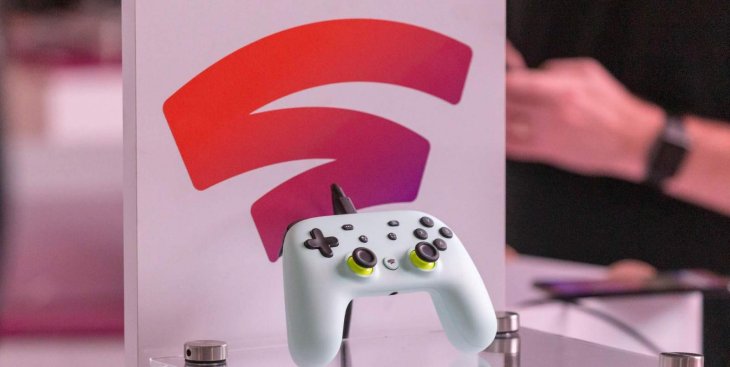Google To Use Negative Latency To Reduce Lag For Stadia
Aadhya Khatri - Oct 14, 2019

Given Google's experience in AI and machine learning, the idea of Stadia predicting button presses does not sound so silly at all
- How To Set Up And Play Google Stadia On Smartphone
- Google Stadia Controller Will Support Wireless Connection For Phones In 2020
- Amazon Will Launch A AWS-Based Cloud Gaming Service As Early As 2020
Gamers still maintain a certain level of skepticism about cloud-based gaming, given the fact that not everyone has the privilege of a fast Internet connection, and lag will ruin all the joy of gameplay.
Google seems to have solutions to people’s concerns, as in an interview, Madj Bakar, Stadia's VP of Engineering said that Stadia would become more responsive than console in the future. The underlying technology might sound a bit weird, but the method might work.

He told Edge that latency attracted lots of attention. For now, the improvement has helped Google to achieve more than a playable result. In the next few years, the company hoped that it could make games be more responsive and run faster in the Cloud than the traditional way with a lot of hardware. Stadia will run games with predicted latency between the user and the server, and then it will use several methods for undercutting them. It can also predict what the player is going to press next to be better prepared for the player's potential input. With the new idea, games can be streamed at a super-fast speed, even faster than a console one at 30 fps and a wireless controller. All of these results can be achieved with the help of the seemingly slippery terms.
The “negative latency” is what raises concerns, but Google has its point when combining a buffer with high frame rates. The company has plenty of experience in machine learning and AI, so the idea of predicting button presses do not sound that silly.
So far, the only way to convince users is to let them test the technology in the wild. And fortunately, we have to wait only a month to do that as Google Stadia will make it to reality in November.
Featured Stories

ICT News - Mar 03, 2026
Budget Entry-Level PCs Under $500 to Vanish by 2028 Due to Memory Price Surge

ICT News - Mar 02, 2026
IDC Report Predicts Surging Smartphone Prices Due to Global RAM Shortage

ICT News - Mar 01, 2026
Samsung Links Galaxy S26 Price Hikes to AI Memory Supply Issues

ICT News - Feb 28, 2026
Anthropic Blacklisted by US Department of War: Trump Orders Federal Ban Over AI...

ICT News - Feb 26, 2026
AI Models Frequently Resort to Nuclear Escalation in Simulated Crises, Study...

ICT News - Feb 23, 2026
It's Over for Xbox: Asha Sharma Takes Over to Ruin Microsoft Gaming with AI

ICT News - Feb 22, 2026
Which AI Model Excels at Which Task in 2026: A Comprehensive Guide

ICT News - Feb 21, 2026
AI Coding Agent Causes Major AWS Outage at Amazon

ICT News - Feb 20, 2026
Tech Leaders Question AI Agents' Value: Human Labor Remains More Affordable

ICT News - Feb 19, 2026
Escalating Costs for NVIDIA RTX 50 Series GPUs: RTX 5090 Tops $5,000, RTX 5060 Ti...
Read more

ICT News- Mar 03, 2026
Budget Entry-Level PCs Under $500 to Vanish by 2028 Due to Memory Price Surge
The era of the sub-$500 PC appears to be ending.

ICT News- Mar 01, 2026
Samsung Links Galaxy S26 Price Hikes to AI Memory Supply Issues
This development highlights the broader challenges faced by the tech industry as it integrates artificial intelligence into everyday consumer electronics.

ICT News- Mar 02, 2026
IDC Report Predicts Surging Smartphone Prices Due to Global RAM Shortage
This development underscores the broader ripple effects of the AI boom on everyday technology, highlighting the interconnected nature of global semiconductor supply chains.
Comments
Sort by Newest | Popular